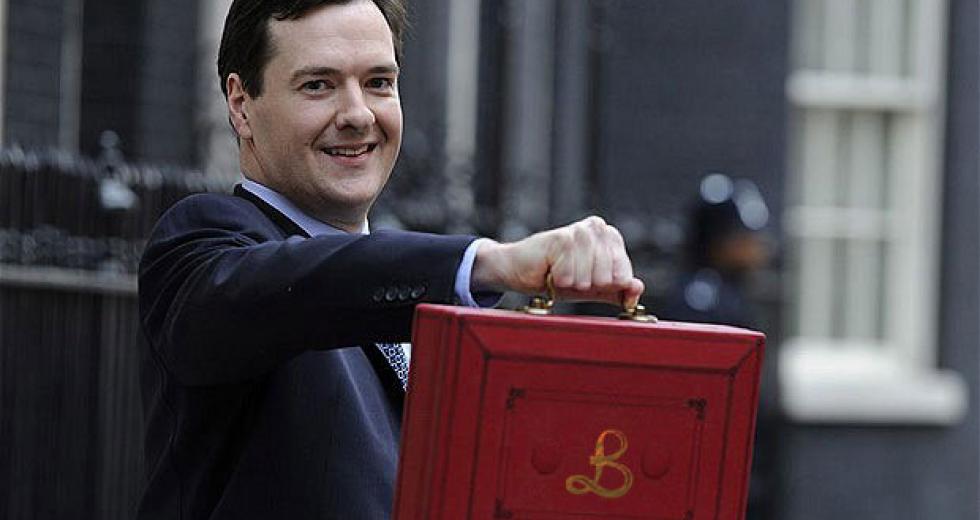
It is several months since we launched our campaign to “Bring Back The Bradbury” - the parallel currency issued interest free by the British Government just a few days before the onset of World War One.
While we recognise that the Bradbury Pound was used by the government of the day as a bail out mechanism for banks fearful that the onset of war would trigger a run on deposits, our argument is that its creation set an historical precendent not seen before or since - that government has the power to issue money based on the credit of the nation.
As word of our campaign spread, many MPs began receiving letters from constituents asking questions about the Bradbury Pound. Without exception so far, rather than answering the query themselves, they simply passed the question on to the Treasury for comment.
In other words, “Don’t ask me to enter into dialogue with you, you pathetic constituent, I have better things to do. So here’s a stock answer from Sajid Javid instead.”

In that stock answer, Sajid Javid, then Economic Secretary to the Treasury, states that a return of the Bradbury Pound:
would not allow for the separation of fiscal and monetary policy - a key feature of the UK’s economic policy framework. Printing money to meet fiscal objectives, such as financing Government investments or spending, would conflict with the Monetary Policy Committee’s objective of price stability and undermine confidence in the UK’s monetary policy framework. In addition, if the money was printed by the central bank, this would be illegal under Article 123 of the Treaty on the Functioning of the European Union which prohibits direct government borrowing from the central bank.
The Separation Of Fiscal And Monetary Policy
Before dealing with each of Sajid Javid’s points, let’s get a couple of definitions out of the way.
Fiscal Policy refers to the government’s use of money - where it gets it from and what it spends it on.
Monetary policy refers to control of the money supply and therefore inflation.
According to Sajid Javid, it is a “key feature” of the UK’s economic policy framework that these two things should be kept separate.
That separation is achieved by giving the Bank of England’s Monetary Policy Committee responsibility for managing Monetary policy in the UK, totally independently from government. The extent of their accountablility to government or the taxpayer lies in the 2% inflation target which they have failed to meet for several years now. The only consequence for this failure is that the Governor of the Bank of England has to write to the serving Chancellor of the Exchequer once a month to say how sorry he is.
The lack of accountability doesn’t end there. Despite being wholly owned by the taxpayer, the Bank of England is free to operate as a private wholesale bank for the benefit of all its customers, of whom the British government is only one. The Bank’s other customers are unknown; a commercial secret exempt from the scrutiny of the Freedom of Information Act.
So the “key feature” of Britain’s economic policy is that the City of London is the sovereign power in Britain, because it has total control of Britain’s money supply (and therefore credit) via a Monetary Policy Committee largely staffed by City bigwigs, and totally unaccountable to anyone other then themselves.
Confidence In The UK’s Monetary Policy Framework
Javid goes on to say that should the government “print money” to fund its own fiscal objectives (its own spending), that this would undermine confidence in the UK’s monetary policy framework.
One question which should be asked at this point is, whose confidence would be undermined?
The answer should be obvious - “the markets” - that all encompassing phrase which increasingly refers to a vast network of computer programmes run by hedge funds and investment banks. “The markets” have not been human since the City of London was computerised, if they ever were at all, and so it’s a bit of a stretch to suggest that they are capable of having “confidence”.
Each and every hedge fund manager and investment banker tells their customers that their computer programme does things completely differently to all the others. In fact they’re more or less all the same, so when one “loses confidence” and runs for the door, they all do. Quickly, and at the same time.
And that’s why successive Prime Ministers and Chancellors spend all their time keeping “the markets” happy.
Illegal Under Article 123
But the biggest sleight of hand in Javid’s stock answer comes with the claim that there can be no return of the Bradbury Pound because for government to borrow direct from the central bank would be illegal under some European treaty or other.
The sleight of hand can be identified through the use of two words - Quantitative Easing.
Here’s how it works:
The government needs money. Under the current system, it borrows some by issuing Gilt Edged Bonds and selling them to “the markets”. The result is that these bonds are held by market participants (hedge funds, investment banks, pension funds and other speculators), and government receives cash in return.
Next, the Bank of England buys back the bonds from the speculators, using money newly printed from nothing to do so.
The end result is that the government has simply borrowed newly printed money from the central bank. Not “directly”, admittedly, but it is clear that EU treaties can be “worked around”.
The Difference Between Money And Credit
Sajid Javid’s stock answer is no more than a list of excuses for why government will not defy “the markets” and use the precendent of the Bradbury Pound to create the money base needed to rebuild Britain as a functioning nation state. The key point that Sajid Javid refuses to get his head around is that the national credit policy represented by the Bradbury Pound negates the need for government to borrow money at all. It answers the simple question, “why would a sovereign government borrow its sovereign currency at interest from private bankers?”
It can be seen through the actions of recent governments that they have no concern whatsoever for the future. Their only concerns are for now, or perhaps for the next few years at most, and for the corporate interests which sponsored their election campaigns.
Surely it is the principle that we owe it to future generations to do everything in our power to leave the nation and the world in a better condition that we found it which should drive all government policy?
The economic ideology which drives them is monetarism, and for the monetarist a policy of national credit is an anathema.
Here is the main difference between a monetary system and a system based on national credit: under a monetary system, as we have today, the debt we owe lies in the past. We borrowed money from a third party in the past, so we have to pay it back, with interest, even if a billion people have to die in the process. This is why there is “not enough money” to properly fund the NHS, or education, or energy infrastructure.
With a system of national credit, as represented by the Bradbury Pound, the debt we owe lies in the future. It is the debt we owe to our own descendents. There is no interest attached. There is only optimism for the future and a drive to build a future for the generations to come.
If this makes sense to you, then please join us in London on the 19th. If you can't join us, please help by doing some of the "how to get involved" tasks in the Fact Box above.
A printable map of the meeting point is available here.

